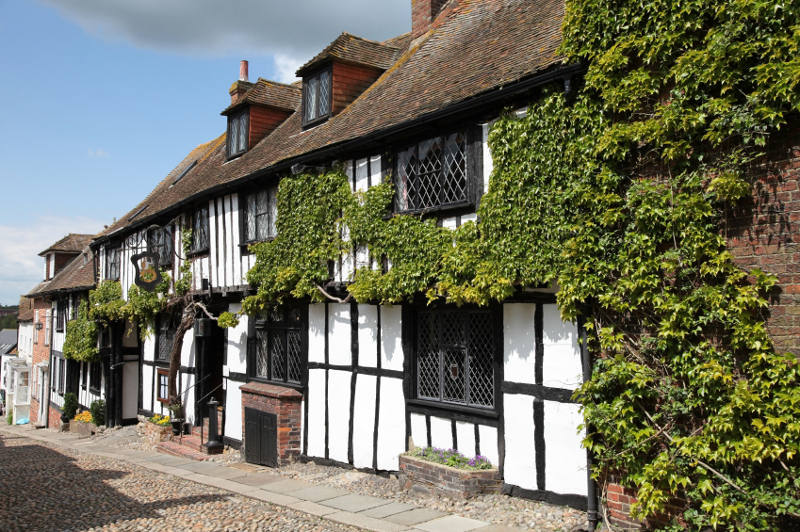Medieval Inns in England were big business
According to a new study by John Hare, medieval inns in England were big business and innkeepers were prominent members of society: “at a time of growing specialism, they were a crucial part of the economic infrastructure of the country”, he writes. Although focusing primarily on central Southern England, the study succeeds to place this in a wider context, thus illuminating the general economic impact of medieval inns.
It appears that a late medieval inn in England typically consisted of a hall, kitchen, stable and storage plus chambers and the accommodation for the innkeeper – much as is the case today, except the stable now takes the form of a parking lot. Many chambers offered only communal sleeping, but private and locked rooms became more and more prevalent during this period. Apart from regular inn-keeping, many inns also functioned as centres for marketing of such diverse products as fish, beer, wine and sometimes cloth.

Such inns became a prominent feature in the economic landscape after 1300 – 1350. This excellent study shows that most of the inns from around 1600 were already in existence by 1379. Provincial capitals around 1400 could boast of 10 to 20 inns, market towns had 2 to 5 and small towns one.
Inns varied greatly in size but high annual turnovers in rent demonstrate the potential for considerable profits. Expectation of such high revenues generated heavy investments from institutions (monasteries and university colleges) as well as individual lords. For instance Winchester College spent more than £400 on the Angel Inn in Andover (see photo) from 1366 to 1404 hoping to get yearly revenue of £10. Unfortunately – as John Hare tells us in his commendable overview – this was not quite the end-result, but it did generate between £7 – 10 from 1456 -1532.
Innkeepers were generally wealthy and part of the urban elite. They took part in local government and acted as expediters and banking agents as well as important local hubs in the late medieval system of commerce.
To quote from the abstract: “The conclusion is that in later Medieval England there was a regular provision of inns in accordance with the size and importance of the towns. Inns generated substantial rent and were evidently felt to be worth considerable investment. Innkeepers were among the rich and influential members of the town. Inns played a vital role in evolving and prospering economic, social and political life of the nation in this period.”
FEATURED PHOTO:
The Angel Inn in Andover from mid 15th century ©Anguskine
READ MORE:
Inns, Innkeepers and the Society of Later Medieval England, 1350 – 1600
By John Hare, University of Winchester, Winchester, SO22 4NR, United Kingdom
In: Journal of Medieval History 2013, final version 06.08.2013. Online 18.09.2013
Winchester College and The Angel Inn, Andover: a fifteenth century landlord and its investments
By John Hare
In: Proceedings of the Hampshire Field Club Archaeological Society (2005), Vol. 60, 187-197
The world of the Tavern. Public Houses in Early Modern Europe
Edited by Beat Kümin, University of Warwick, UK and B. Ann Tlusty, Bucknell University, USA
Ashgate 2002
Hardback, 264 pages
ISBN: 978-0-7546-0341-2
